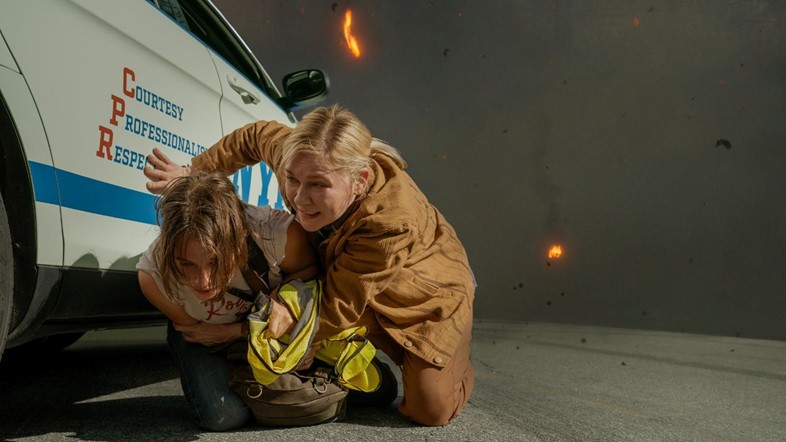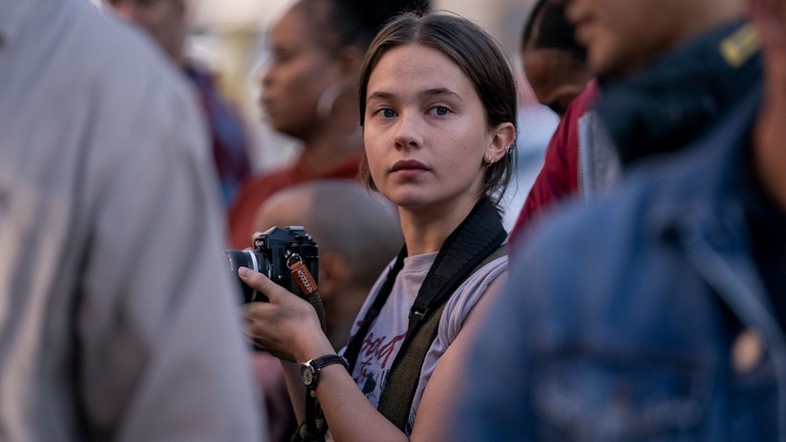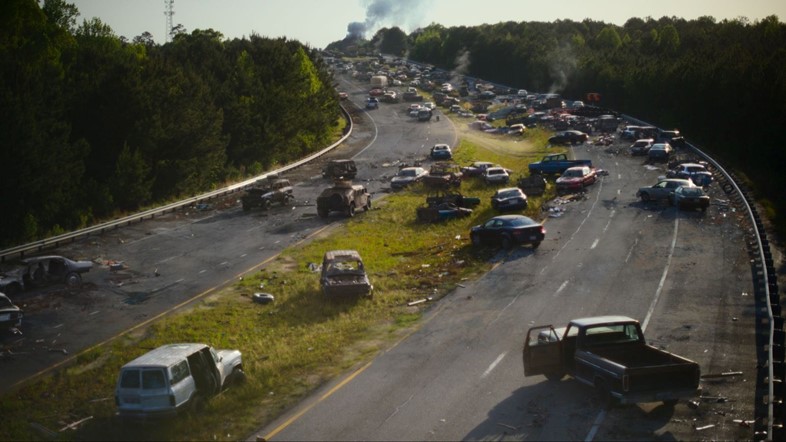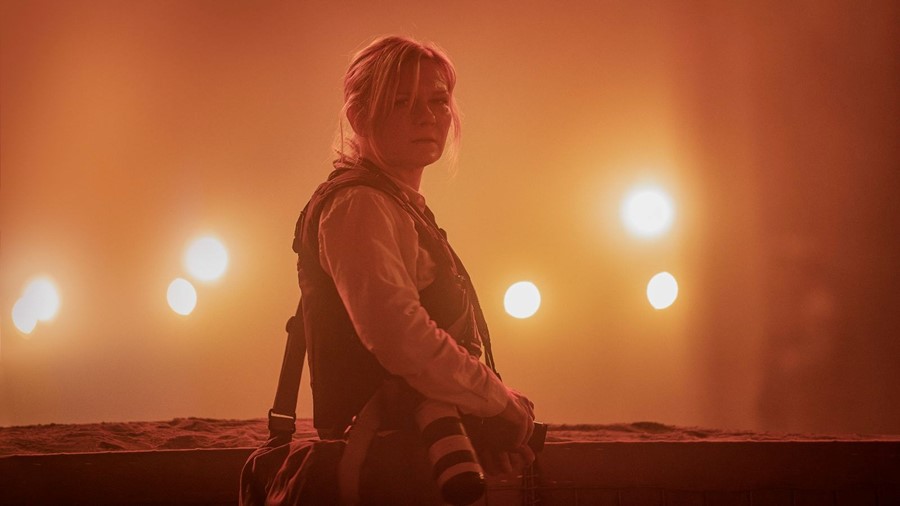As his dystopian action movie is released, Ex Machina director Alex Garland talks about the halcyon days of unbiased journalism, working with Kirsten Dunst, and ignoring internet criticism
When Alex Garland first pitched his film about reporters plunged into an imagined US civil war, the objections weren’t what you might think. “People actually told me, ‘Don’t make a film about journalists, everyone hates journalists,’” says the British writer-director of Ex Machina and Men – I want to say “with a laugh”, but Garland is on righteous, slightly testy form here. “I just thought, that’s insane. On some level, if you care about society that’s like saying don’t make a film about doctors. It’s madness.”
Garland’s respect for journalists is lifelong: his father, Nicholas, was a political cartoonist who worked for the New Statesman and the Spectator. In making them the heroes of Civil War, a dystopian action flick uncomfortably close to the present, he makes a case for their importance amid the rising forces of populism. Starring Kirsten Dunst and Priscilla breakout Cailee Spaeny, his film follows a motley band of journalists heading south from New York to Washington DC, where the ‘third-term’ (read: despotic) president, played by Nick Offerman, quakes under his desk as rebel forces march on the Capitol.
It’s a thrilling provocation that could well end up being the director’s biggest film to date; it’s certainly his most artistically risky. But it’s a line Garland walks by sharing in the ethos – facts, not feelings – of some of his early journalistic heroes.
Below, AnOther spoke with Alex Garland about the making of Civil War.
Alex Denney: You started writing the film in 2020, during the pandemic. Was there a specific trigger for the idea?
Alex Garland: It was just this huge ambient situation [across the world] where journalists were being disempowered as the enemy, the huge rise in populism and polarisation and the thing that flows from that, which is extremism. And it just so happens that four years later we’re in exactly the same situation, but worse.
AD: It’s interesting how you chose to hang this story on a group of journalists. Your dad was a political cartoonist, wasn’t he?
AG: Yeah, I grew up around journalists. It was a more old-fashioned form of journalism [where] you could work for all sorts of places, but within that there was a strong ideology about avoiding bias and reporting the facts whatever your own personal feelings were. It was to do with being trusted. But what happened was the institutions behind the journalists began to erode that. Bias didn’t just creep into the journalism, it became part of the reason the journalistic institution existed. It had a constituency it was speaking to, a choir it was preaching to, and something began to fall apart.

AD: Is it a career you ever considered?
AG: Absolutely. My godfather was a foreign correspondent, my younger brother’s godfather [too]; I went to live with him in the Philippines for six months when I was 18. But what I discovered, particularly in my early twenties, was that I couldn’t really write non-fiction. I tried but I found it very, very difficult. And suddenly when I wrote fiction, I loosened up and felt able to get to the next sentence and the sentence after that. But I had all sorts of formative experiences with journalists. I think it’s one of the privileges of the life I’ve had.
AD: The film is notable for what it doesn’t show as well as what it does. We’re thrust into the action without much backstory on the war.
AG: I’d slightly dispute that actually. Film has a grammar, and because it’s mass-market media it has discovered a way of speaking that is super, super clear. So it states very simple questions, like who killed that person? And then at the end it says the butler did it. I think the film is filled with all sorts of telegraphed positions, it’s just that it’s implicit to an extent so you have to say, ‘Well, if this is the case, how did that happen?’

AD: Is it just me saying this? Or is this a question you’re hearing a lot?
AG: No, it’s definitely not just you saying it. But my question is, is it about this film? Or is it about the grammar we’ve become used to in mainstream cinema? The film I enjoyed the most last year was Anatomy of a Fall, and one of the things I liked about it was just being treated like a sentient adult, and feeling [like] part of a conversation. That was my approach to this film: I wanted to make it a piece of reporting. Now, the weird thing is we live in a world where reporting without bias is seen as unethical. And that to me is flat-out moronic. I want bias-free reporting and the film makes a case for it.
AD: Why did you want Kirsten Dunst for the lead?
AG: She’s a proper actor with a lot of soul. The interior life isn’t hidden. It’s contactable; [with] some actors their interior life is very hidden and that’s actually their asset. But not with her. It’s almost tactile. You talk to her and she wears everything very lightly, but she’s super observant, and later on she’ll make some very precise observation about something. It’s a very actor-y thing, the noticing stuff. So it was the soul for the character, and the observing watchfulness for the photographer, it just made sense.

AD: Do you anticipate the film getting caught up in the culture wars narrative? Is that something you’re personally wary of?
AG: You couldn’t make this film if you cared that much about it. One of the problems with some of those voices is that they are silencing, and so I’ve chosen just not to participate in that game much. The people I admire in life are all just following the thing that they believe, in a sense, and not worrying too much about other people who might disagree with them. Because it stops you in your tracks. Really.
AD: Absolutely. But you must have known the film would elicit this kind of response?
AG: Sure. But I almost cannot think of a statement one could make that would not incense somebody on the internet. I might say I like Diet Coke and incite the rage of, you know … the Pepsi extremists. What are you going to do?
Civil War is out in UK cinemas on April 12.
